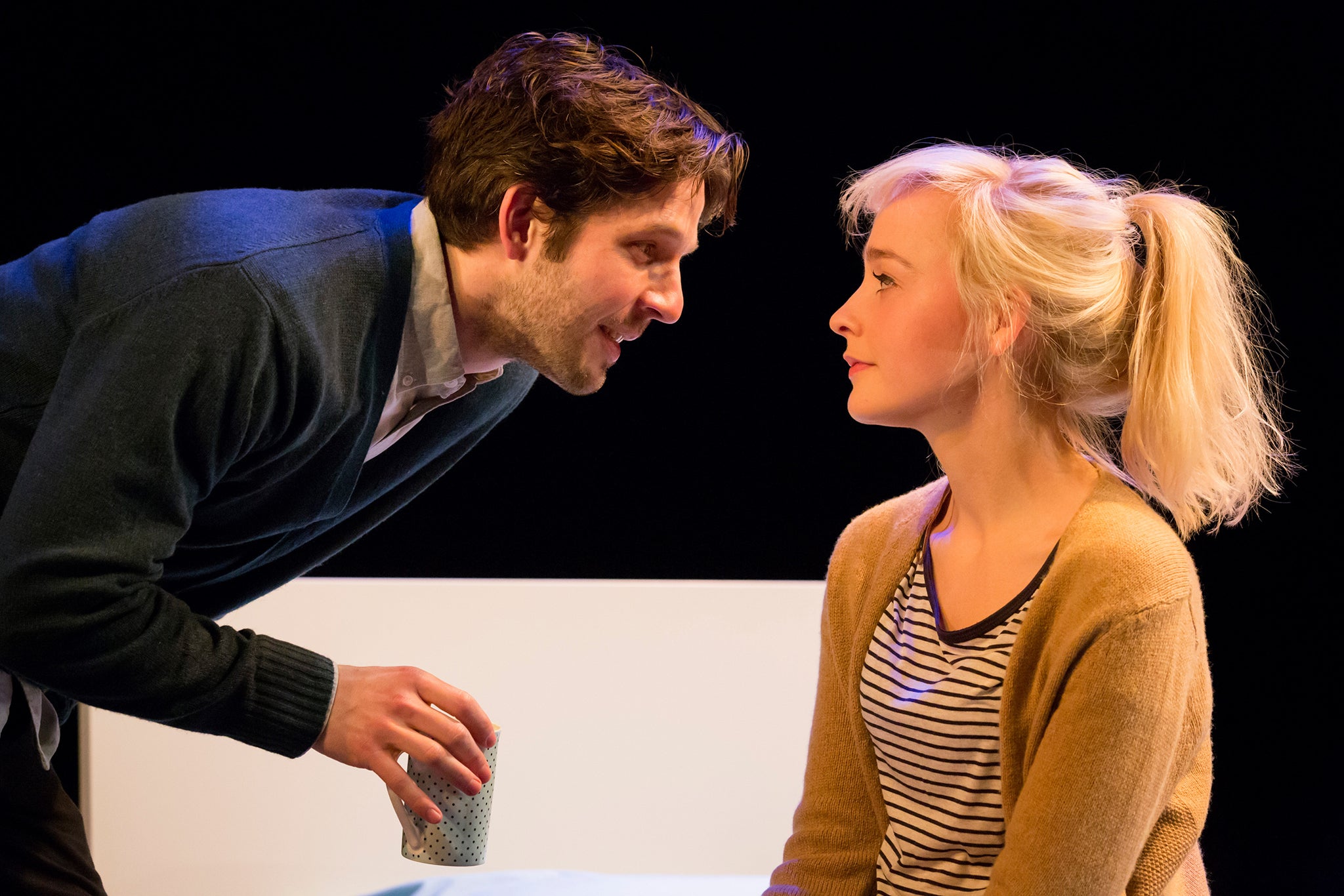The Hard Problem, review: Nicholas Hytner's last production for the National Theatre is a disappointment
Dorfman Theatre, National Theatre

Your support helps us to tell the story
This election is still a dead heat, according to most polls. In a fight with such wafer-thin margins, we need reporters on the ground talking to the people Trump and Harris are courting. Your support allows us to keep sending journalists to the story.
The Independent is trusted by 27 million Americans from across the entire political spectrum every month. Unlike many other quality news outlets, we choose not to lock you out of our reporting and analysis with paywalls. But quality journalism must still be paid for.
Help us keep bring these critical stories to light. Your support makes all the difference.
Tom Stoppard's first new stage play in 9 years; Nicholas Hytner's last production as a great artistic director of the National Theatre. I wish I could say that The Hard Problem rises triumphantly to this hotly anticipated occasion. In truth, though, it's a bit of a disappointment.
Hytner directs an elegant, incisive account of a piece that buzzes with complex ideas, passionately and wittily expressed, but which never quite exerts a strong enough grip as drama. In the best of Stoppard (Arcadia, The Invention of Love), there's the exhilarating co-existence of high-wire intellect and real depth of feeling. Here, the emotional life of the play feels somewhat under-nourished.
What is consciousness? What is its relation to the brain? Can neuroscience ever solve the mystery of why we have subjective first person experiences as opposed to having brain function but no sense of inner life? This is the “hard problem” that torments Hilary, a young psychology researcher at a brain science institute whose luminous integrity and private sadness are excellently conveyed by Olivia Vinall. Her scepticism about evolutionary biology and her belief in God are resoundingly mocked by her university mentor and intermittent bed partner Spike (sexily sardonic and cocky Damien Molony) who is first seen sparring with her over the possibility of altruism. For Spike, even mother love is long-term self-interest in disguise and he jests that he nicknames Raphael's Madonna and Child “Woman Maximising Gene Survival”. But Hilary has a principled horror that the notion of goodness can be reduced to evolved cost-benefit behaviour.
It gradually emerges that her agonising over these questions has been intensified by a great and unassuaged sorrow: as a schoolgirl of fifteen, she became pregnant and had to give up her baby daughter for adoption. With no information about the child's welfare, she resolved to be good so that, in return, someone, “God, I suppose”, would look after her. In a play that's full of pointed coincidences, as it muses on the flaws in any predictive science of human behaviour, this aspect of the plot seems to arise clumsily and to resolve sentimentally in a manner that you can see coming a mile off. But it explains, without discrediting, Hilary's preoccupation with the viability of altruism. If the play begins with an argument over the Prisoner's Dilemma, it ends with the heroine refuting the alleged principle (“self-interest is the bedrock”) that it illustrates. She takes the rap for a colleague who, in a co-written paper, had fiddled with the experimental sample of school-children in the interests of overturning the received wisdom that we start off nasty and learn to be nice.
The play extends its attractive scepticism about the brain/mind as a computer into the world of finance with Parth Thakerar's Amal morphing over its course from a big-headed would-be biophysicist to the creator of computer models designed to manage risk, foiled from time to time by the market's tendency to behave irrationally: “It's only computers compute”. As always with Stoppard, there is much to ponder but, apart from Hilary all the very well-acted characters feel two-dimensional, and the play hasn't transmuted its research into an emotionally satisfying whole – as Lucy Prebble did with The Effect, her play about brain chemistry, love and depression in this same theatre.
To 27 May; NT Live in cinemas April 16; 020 7452 3000
Join our commenting forum
Join thought-provoking conversations, follow other Independent readers and see their replies
Comments